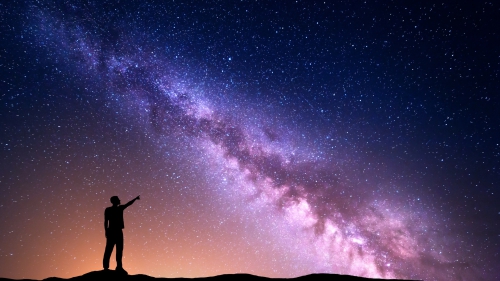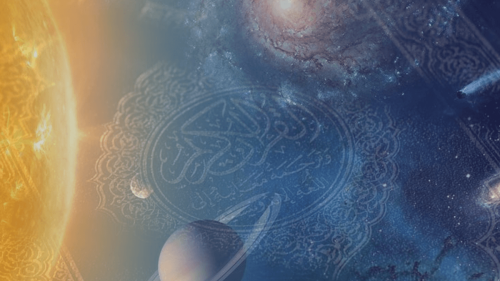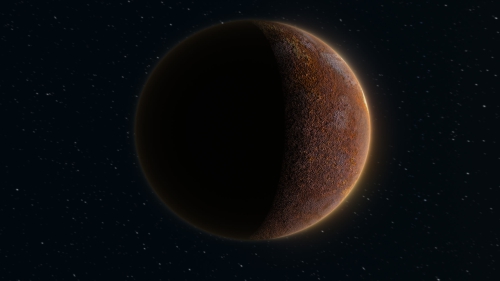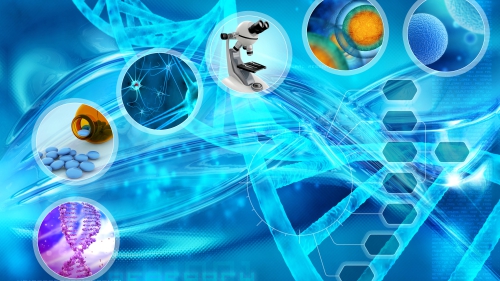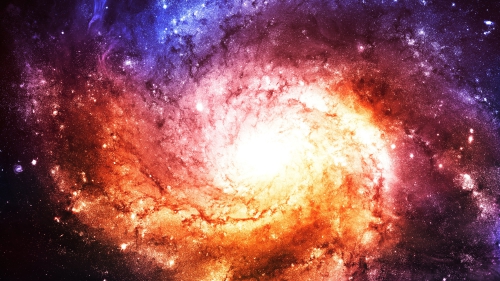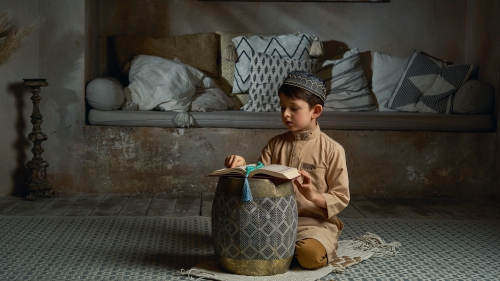The Need for Islamization of Knowledge (Part Two)

The totality of knowledge
Knowledge is not to be viewed as a mere product, or an outcome, made available for use in order to satisfy the private or institutional aspirations and superficial needs of clients (end-users). Nor is it to be professionalized, nor commercialized, in the narrow senses of the two subjects. Rather, knowledge is to be seen in a more comprehensive light. It is an all-inclusive universe that involves the totality of life and targets the multidimensionality of man in his capacity as the former’s pivot. It is furthermore a never-ending process that inspires, transforms and enriches. It lies at the core of man’s terrestrial mission. It is yet his mission, for man is created to know and act accordingly.
It is therefore no coincidence that knowledge is hardly ever mentioned in isolation. As a familiarity, awareness and understanding of life experiences and realities, knowledge is always accompanied by such concepts as seeking, acquiring, gaining, applying and affecting. Simply put, knowledge is life and life is all about knowledge. Both are hallowed. Just as the phenomenon of life cannot be relativized, fragmented and unhallowed, neither can knowledge be disintegrated, undervalued and deconsecrated. Knowledge is inseparable from man, existence and truth.
That is why in philosophy knowledge as an idea, experience and quintessence of life, attracted a great deal of attention. The study of knowledge is called epistemology. It constitutes one of the four main branches of philosophy, the remaining three being ethics, metaphysics and logic. Epistemology is concerned primarily about the nature of knowledge, its sources, methods, validity and scope, and the nature of relationships between justified beliefs, mere opinions and scepticism. Here, too, the questions of the universality, totality, practicality and trustworthiness of knowledge are readily apparent. By the same token, in virtually all religions knowledge is held in high regard as well.
To look upon knowledge as no more than information, facts and skills about observable things and events, is grossly inappropriate. It amounts to an insult to that most noble entity and pursuit. Positively, from the most prominent Greek philosophers to the revealed message of Islam, people are bad and behave unethically only because they are ignorant, or because they misuse or abuse knowledge. For the same reason - letting thereby inflated egos and selfish interests to preside over attitudes, judgments and decisions - people choose falsehood over truth, and darkness over light. While knowledge, or the lack of it, is the root cause, worldviews and life involvements are the effects.
Four dimensions of knowledge
By and large, knowledge has four dimensions: knowledge itself as the end-product; application of knowledge for the practical aims of human life; processes and attitudes by which knowledge is generated; and the world of ideas and thought (worldviews and philosophies) whence knowledge originates and upon which it is based.
When it comes to IOK, the implications of these four dimensions are serious and need to be duly observed. As systematized branches of knowledge, sciences pertain differently and to different degrees to the four dimensions. There is no room for generalization, though, nor for one-size-fits-all approaches and methods.
Each Western science should be studied meticulously so as to ascertain its position vis-à-vis the four dimensions, and to determine the points where it meets Islamic worldview and principles and where it diverges from them. Then, predicated on the findings, appropriate methods and systems of Islamization for each science can be devised.
It goes without saying that each science will have its own IOK logic, scope, method(s) and procedure, in that every science has its own individuality, compass, methods and objectives. For example, engineering must not be treated like humanities, nor built environment sciences like social sciences, nor natural sciences like formal sciences, etc.
Not respecting this rule inevitably renders IOK, especially in the eyes of students and scholars in pertinent fields, thorny, irrelevant, hyped, tedious and unwanted. For instance, to focus so much in formal, applied and exact sciences on knowledge itself as the end-product (the first dimension) will prove arid and counterproductive, as knowledge in those fields, generally, is exact, authentic and experiential. The focus should rather be on the remaining three dimensions (application, ethics and philosophy) which envelop and bring into operation – and into life - the knowledge in question.
Similarly, not to concentrate most of all on the first dimension in human and social sciences will also be ineffective and unrewarding. This is so because the scope of human sciences: the philosophical, biological, cultural and social aspects of human life, and the scope of social sciences: society, civilization, human behaviour and human relationships, correspond to the focal thrusts of Islam as a religion of human development and society as well as civilization-building.
It is in the arenas of human and social sciences, unsurprisingly, that Islamic knowledge and its Western counterpart are incompatible most. And since that type of knowledge is the foundation and soul of all other knowledge types, it is right there that IOK should be most active. Indeed, man and society are the spheres where the Islamic transcendent and monotheistic identity, and where the Western materialistic, hedonistic and profane tendencies, assume most importance. Despite the undeniable import of the other three dimensions - which must not be neglected in any way - the first dimension (knowledge per se) should predominate in the orb of human and social sciences. Success therewith will lead to and will facilitate successes in other branches of knowledge and their sciences.
The first dimension (knowledge itself)
As the first dimension, knowledge itself as the end-product, whenever in conflict with the teachings of Islam, should be appropriately Islamized and substituted with the adequate Islamic knowledge also as the end-product. This is extremely challenging as Muslims (wide circles of scholars) are thus required to master not only Islamic sciences, but also their Western counterparts. However, that is the price to be paid for the challenge of reviving Islamic civilization and for leading the way. Stakes could not be higher. It is a “no pain, no gain” situation, which means that only hard, disciplined and tenacious work leads to improvement and progress, and guarantees greater value rewards.
In doing so, there shall be no room whatsoever for mediocrity, half-heartedness and complacency. Nor should emotional outpouring, sweet-talk and empty rhetoric be welcome, because things are purely results-oriented. It is only concrete outcomes and achievements that are taken into consideration – and listened to.
IOK is not about superficially criticizing the problematic facets of Western thought, after which the created cavities are patched by simply quoting Qur’anic verses and the hadiths of the Prophet (pbuh), and then life gets back to business as usual. Not only is this method faulty and unfulfilling, but it also can seriously backfire. In this manner, IOK will increasingly tilt towards becoming an unattractive proposition, appearing as though an unworthy undertaking. Even the most passionate advocates of IOK by this inappropriate method, sooner or later, will arrive at the same conclusion. This explains why some individuals and institutions, which had adopted IOK as their raison d’etre, ever more falter today.
This in addition calls for having faculties, colleges, institutes, centres, etc., in Muslim universities for studying exclusively Western civilization and thought. No doubt that many Muslims devote themselves to doing so today, but such is done principally on Western terms and so, leaves a lot to be desired. The Muslim world needs Muslim experts on Western civilization and thought produced by Muslims and for Muslims. This will prove as important as mastering Islamic civilization and thought. Without knowing the ways Westerners think and how they do things and why, Muslims will not be able to diagnose their major problems adequately. Getting to the bottom of the root causes will keep evading them. And without overcoming causes, effects will not be overcome either.
People have misgivings about, fear and yield only to the unknown. Knowledge puts its proprietor in an advantageous and strong position. Lack of knowledge ensures the opposite. Knowledge is superiority and control, ignorance inferiority and capitulation. As a Latin aphorism goes “knowledge is power” (scientia potentia est). Ali bin Abi Talib also said: “Knowledge is power and it commands obedience.”
Unsurprisingly, no sooner had the Western world started seeing Islam and Muslims as ideological rivals and even existential threats, than they embarked on extensively studying them. That gave birth to Orientalism as a Western scholarly discipline in the 18th and 19th centuries, whose groundwork nevertheless dates significantly further back. Still today, most of reputable Western universities feature academic programs whose focus, partly or completely, is on Islam, Muslims and the Muslim world. Studies are on Western rather than Islamic terms.
Apart from specialized institutions and academic programs dedicated solely to critically studying the West and its civilization and thought, there should additionally be two core courses in each and every Muslim academic program: one for Islamic civilization and the other for Western civilization. Since the purpose of having these two academic courses is more than just teaching and educating students, in the conventional meaning of the terms, some of the best and most capable instructors should be appointed for the purpose.
As said earlier, the knowledge of humanities and social sciences will be affected most by IOK. Which is understandable because all knowledge must be seriously problematic if it originates from, and rests on, the premises that there is no God and Heaven and that religions are mere fabrications and are regressive; that life evolved on earth and that man, too, evolved from apes; that nothing exists but matter and its movements and modifications and that man is also composed only of matter; that life is an accident or a result of a series of coincidences and that man and his life are also accidents; that life has no metaphysical meaning or purpose and that truth is neither known nor knowable; that man is fully in charge of earth and its resources, and of his own destiny, and that the only aim of life is pleasure-seeking, etc.
If truth be told, there is no single knowledge aspect especially in psychology, sociology, anthropology, civilization, law, philosophy, visual arts, economics and education that does not have an IOK question mark over it. Most contemporary problems faced my man as an individual and a member of society are due to the failure of humanities and social sciences. Some of such problems are racism, discrimination, erosion of the family unit, immorality, injustice, poverty, ignorance, spiritual and mental disorders, substance abuse, LGBT, etc.
The second dimension (application of knowledge)
As the second dimension, application of knowledge for the practical aims of human life should be studied against the background of the Islamic notion of maqasid al-shari’ah (objectives of Islamic shari’ah), as preservation of life in its totality, religion, intellect, lineage (future generations) and property (private, collective and that of the whole earth). That will be the focus of IOK especially in the domains of applied, formal and natural sciences.
Those sciences, powered by their empirical and scientific methods, appear to be pure and innocent as far as their natural, formal and practical scientific outputs are concerned. However, when it comes to the transfer of those outputs into physical environments and to their application in everyday life, things get more complicated. If mismanaged or taken advantage of, that form of scientific knowledge can become a source of great misfortune.
For example, the abundant presence of nuclear weapons and the weapons of mass destruction - as a result of which the world is no longer a safe and healthy place and it regularly appears as though on the brink of an all-out global catastrophe – is the consequence of about a century-old abuse of knowledge in some of the most critical scientific fields.
Indeed, the most painful ailments of today’s world - which is dominated and driven by Western civilization - such as global warming, water, air and soil pollution, and wildlife extinction, are the outcomes of irresponsible industrial, engineering, manufacturing, urbanization and built environment activities. These are mainly technology-oriented activities, which however represent the application of scientific knowledge “to the change and manipulation of the human environment.”
If one thinks of World War I, World War II, the (World) Cold War, military globalization, the hypocrisy of the War on Terror and the democratization of the Middle East, endless physical, cultural, political and economic colonization of the Other, one cannot but conclude that a great many sciences and technologies are rendered as harmful as they are useful. In equal measure, they are used for detrimental and beneficial ends. After all, the expression “mad scientist, doctor or professor”, used often in jest, is not entirely baseless.
As part of IOK concerning the application of the knowledge of sciences in question, the following cardinal Islamic principles should be diligently taught and seamlessly integrated into curricula: man as God’s representative on earth, the relationship between man, God and nature, life as trust (amanah), Islamic environmental ethics, maqasid al-shari’ah, Islamic spirituality and sustainable development, excellence, justice and equality. These are to be handled not as add-ons to or the embellishments of curricula, but as essential units thereof. Their practical implications for the sciences concerned and for their better operational ends and objectives are to be accentuated most.
The third dimension (ethics)
The third dimension of knowledge pertains to processes and attitudes by which knowledge is generated - and used. This is about ethics and moral principles which ought to be observed. They relate to the people (scientists, scholars and students) involved in those processes and the ways the processes are carried out. They also cover the aspect of knowledge (sciences) application.
Much has been said about the lack of personal and professional ethical commitment in this regard. People subscribe to the principle of “the ends justify the means”. In the age of materialism, liberal capitalism, consumerism, agnosticism and self-indulgence, it matters little if methods are wrong or unfair as long as the overall self-centred goals are good and justifiable. It is thus fair to assume that man is a wolf to man (homo homini lupus).
Hence, corruption, fraud, greed, selfishness, abuse, personal immorality, dishonesty, double standards, etc., are rampant both at individual and institutional levels. However, it needs to be admitted that of late people speak more and more about ethics, but that is more due to emerging exigencies and as part of social constructionism, according to which meaning, knowledge and values are socially created. The emerging moral trends and codes were the result of ethical relativism.
As a case in point, in the fields of sustainable development and environmental protection (environmental ethics), individuals, organizations and governments worry exclusively about their own interests and future, rather than the intrinsic interests and future of nature and its components. In fact, the latter is voraciously subjected to the former. People are not ethical owing to some universal principles and moral ideals they subscribe themselves to. They do not do good for good’s own sake, but because they have or need to as a consequence of certain regulatory duties and corporate obligations.
For instance, in the United States the idea of business ethics as a scholarly subject was not adopted until the early 1970s. In Europe that was not the case until about a decade later. That was done as a reaction to the growing number of business scandals that at that time were shaking the corporate world. People wanted to distance themselves from what was happening, shoring up thereby their current position and future prospects.
In this dimension of knowledge, IOK should target with the divine and universal character of Islamic ethics the various forms of professional ethics and institutional codes of behaviour, which may be official and written or otherwise. Together with the positives found therein, IOK should aim at producing excellent professionals who will be able to see their careers as trusts, life missions, and the means for making the lives of people better and more meaningful. This however will be just a part of a bigger picture which concerns the philosophy and objective of Islamic education as a whole.
In passing, Islamic educational models seek to produce holistic and righteous men and women – apart from being responsible professionals - who will be life’s and their societies’ genuine assets able to act constructively in all life milieus. Such men and women will be at once the servants and soldiers of truth. The effects of the ethical standards that govern the moral and spiritual wellbeing of their personal and family lives will be extended into the provinces of their dynamic social and professional engagements as well.
This IOK component is vital. Branches of knowledge can be wholesome and constructive only if their members are wholesome and constructive. The former is the effect, the latter the cause. Scientific communities shape their sciences in their own image. For example, there can be excellent sciences relating to the fields of the built environment, engineering, law, economics, medicine, humanities, human societies and social behaviour, etc., only when there are excellent and trustworthy personnel involved in them.
Bad and corrupt engineers, architects, doctors, economists, etc. – and others who are involved in different capacities - beget bad engineering, bad architecture, bad medicine and bad economics. In effect, there is no bad and corrupt engineering, there are only bad and corrupt engineers; there is no bad and corrupt architecture, there are only bad and corrupt architects; there is no bad and corrupt politics, there are only bad and corrupt politicians, and so on.
This lays claim for having in academic programs, as part of IOK, a comprehensive course on Islamic ethics. Each program should feature its own course designed and delivered in accordance with its specifications. The course is to abound with case studies and real-life examples. In addition, the complete programs and their syllabi need to be infused with the soul and ethics of Islam as well, for Islamic ethics is to be practiced and lived, not just preached and theorized about. Within the framework of IOK, furthermore, producing comprehensive Islamic codes of ethics, or conduct, for various professions and careers, should be worked on.
The fourth dimension (worldviews and philosophies)
Unlike animals which act based on instinct, man acts based on thinking. Man is what and how he thinks. His actions are manifestations not only of his thought, but also of his inner self. Hence, thought and ideas are most powerful catalysts for civilization and progress. Only with them, moreover, they can be optimized and sustained. No civilizational model can run on empty. The sterility of thought and the end of creativity spell decline and ultimate fall of civilizations.
For Muslims however, the problem does not stop there. Their troubles as regards the lack of thought and creative ideas are compounded by the fact that they keep importing and devouring foreign, predominantly Western, thought. So much so that the failing Western models – which are increasingly questioned by Westerners themselves, let alone others - still get the biggest support from the debilitated Muslim mind. As a result, the Muslim world became the largest and most profitable dumping ground for the Western intellectual and cultural waste. Throughout modern times, Muslim negligible civilizational performance was – and still is – placed on a Western life support.
That being said, IOK urges that the worldviews and philosophies that underpin and give life to sciences, be thoroughly addressed. The success of Islamizing the first three dimensions of knowledge, to a great extent, depends on the Islamization of this fourth dimension. Certainly, Islamizing knowledge per se, its application and ethics, will be next to impossible without Islamizing the world of core ideas and philosophies that play the role of prime movers in everything relatable to knowledge.
In the allegorical sense, no part of a building can be stable and safe as long as its foundation is unstable and unsafe. Also, the stability and health of a tree depend on the strength and health of its root. The same applies to the edifice of knowledge and its branches (sciences). Everything is tied to ideas (philosophy).
In every science, its philosophical dimension is to be Islamized. The Islamic ideas of God (tawhid as God’s Oneness), life and death, this world and the Hereafter, universe, man and society, culture and civilization, history, prophet-hood, truth and certainty, matter-versus- spirit (body-versus-soul) dialectics, freedom and spiritual servitude - ought to lead the charge.
In all academic programs an inclusive course on Islamic worldview, or philosophy, accordingly should be introduced, with each program featuring its own course designed and delivered in line with its specifications. Discussions, tests and assignments in the said course are not to be utterly abstract and detached from the demands of real-life. They are to be rendered alive, relevant and applicable. Every subject matter is to be accompanied by analysing its implications for and effects on life and knowledge. That will not be easy, though, hence some of the best and most qualified instructors will have to be appointed for the task.
The entire academic programs furthermore should be permeated with the soul and elements of Islamic worldview (philosophy), as much and as ingeniously as possible. For example, it is rightly said that if persons involved in the science of economics only believed that Almighty God is the Creator, Provider and Sustainer, and that man is no more than God’s trustee who will be held accountable for his deeds, the same science will never be the same again; if persons involved in human and social sciences only believed that man is God’s vicegerent on earth created with an honourable mission and purpose, that all people are equal and constitute one family, and that spiritual and moral refinement connote the final goal of all individual and collective undertakings of man, those sciences will be shaken and changed forever at their cores; if persons involved in natural and applied sciences only accepted as true that God is the Creator and Master, that man is His creation and vicegerent, that the universe is also His creation and has been subjected to man’s responsible use, that everything in the universe worships, glorifies and sings praises to the Creator, that life is replete with God’s signs which man, with the revealed knowledge (revealed signs) on-board, is bidden to discover, read and act upon, those sciences, too, will be altered completely.
Topics: Islam And Science, Islamic Knowledge, Science And Religion, Science And Technology
Views: 1599
Related Suggestions










